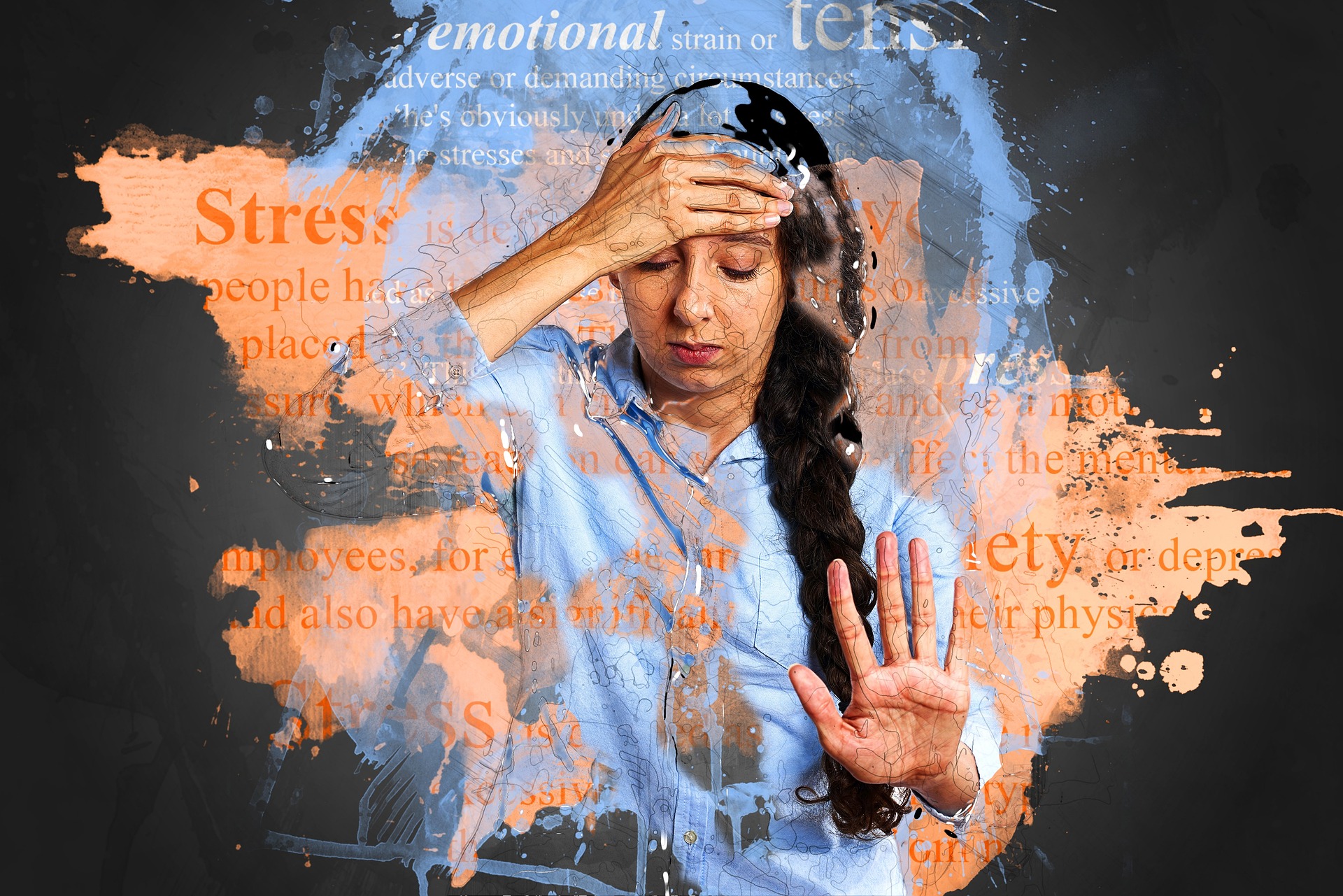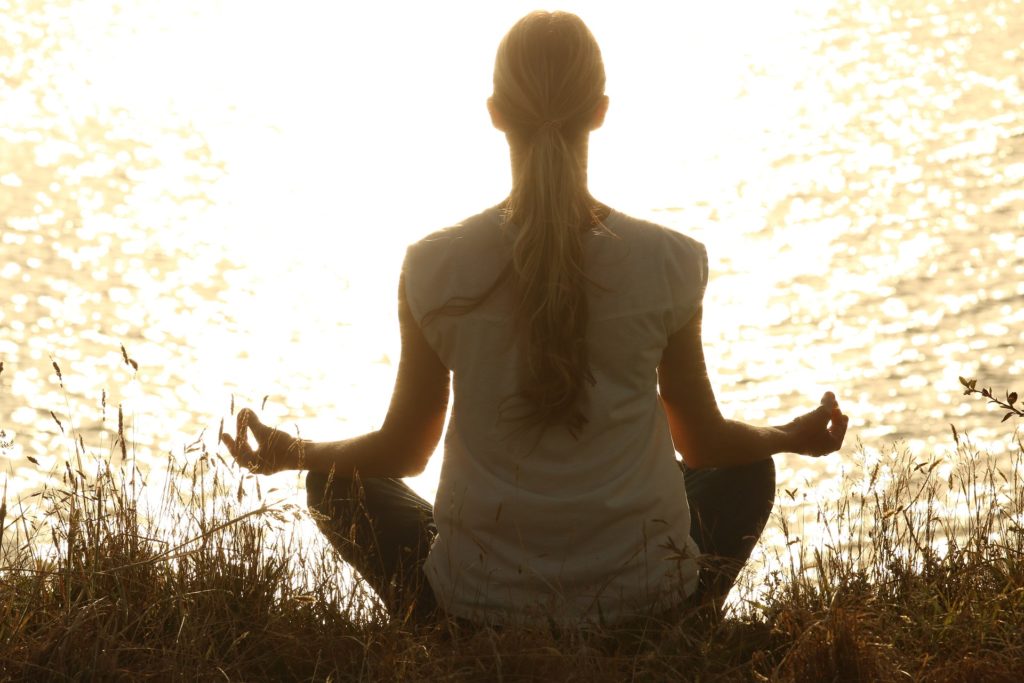by MARSHALL BONE
According to the World Health Organization (WHO), one out of every 13 people worldwide suffers from anxiety, which can interfere with regular daily activities. Dealing with stress and anxiety can lead to health problems down the road, such as insomnia and depression.
Maintaining a sense of peacefulness during times of crisis can be challenging, but it is imperative when it comes to our health and sanity. The following eight ways can help alleviate the stress by bringing calm to the chaos.
1. Mindful Meditation
When you combine being mindful with meditation, you get a potent stress reducer that eases anxiety and mental stress.
-
- This form of meditation is about zeroing in on one thing without allowing outside distractions to affect your thought process.
- When you practice mindful meditation, you can turn down the chaos in your life and bring a lighter feeling to your mind and body.
2. Mindful Eating
Eating healthy and being mindful while doing it is the key to feeling more positive and energetic.
-
-
- Start with a healthy diet. When we do not eat healthily, it can negatively affect our minds and bodies; however, we can handle outside stressors with more ease when we incorporate a more plant-based diet.
- Include more fresh foods such as fruit and vegetables, which are high in stress-relieving nutrients.
- Citrus fruits and red bell peppers are high in vitamin C.
- Vitamin C has antioxidant properties that may help reduce inflammation as well as preventing damage to cells.
- Recent studies have shown a direct correlation between oxidative stress and anxiety.
- Citrus fruits and red bell peppers are high in vitamin C.
- Nutritional supplements can help reduce anxiety and stress.
- L-theanine is an amino acid that can help alleviate anxiety.
- Ashwagandha is a medicinal herb that helps lower stress and anxiety symptoms and cortisol levels, which is the body’s stress hormone.
- Include more fresh foods such as fruit and vegetables, which are high in stress-relieving nutrients.
- It takes the brain roughly 20 minutes to send the satiation signals to the body, so being mindful while eating is imperative.
- Take time to focus and enjoy the flavors of your food.
- Being mindful also helps to avoid overeating, aka stress eating.
- Drink plenty of water to stay hydrated, at least 6-8 8 ounce glasses per day.
- Start with a healthy diet. When we do not eat healthily, it can negatively affect our minds and bodies; however, we can handle outside stressors with more ease when we incorporate a more plant-based diet.
-
3. Mindful Exercise
You don’t need to join a gym to find balance in life through fitness.
-
- Yoga – One of the best activities to combat anxiety and stress, which is due to having to focus on both breathing and physically doing the various poses.
- Tree pose works the core and leg muscles, but it also helps the mind refocus inward and quiets our thoughts.
- The child’s pose works the back and leg muscles while easing fatigue and stress.
- Yoga – One of the best activities to combat anxiety and stress, which is due to having to focus on both breathing and physically doing the various poses.
Walking – Just the act of moving and getting fresh air can help reduce stress, increase circulation, and tone muscles.
4. Mindful Use of Your Senses
Find inner peace through your senses of sight, sound, and smell.
-
-
- Sight – Look at calming things such as fish swimming in a tank. Fish tanks not only lower stress levels, but they also help you sleep.
- Sound – Listen to soothing music for extraordinary stress-reducing effects.
- Smell – Use calming essential oils with aromatherapy. Utilizing Black Seed Oil calmed feelings of anxiety.
-
5. Mindful Sleep
Getting enough sleep is essential for our mind and body to function at its best.
-
- Having anxiety can cause sleep problems, and sleep disturbances can also cause stress.
- Try to stay on a set sleeping schedule and turn off all lights and electrical devices that emit blue light as that can trigger the brain into thinking it is time to wake up.
- Utilize sleep-promoting sounds such as the ocean, windchimes, or whatever helps you to relax.
6. Mindful Gratitude
Being grateful has a direct impact on mental and physical well-being.
-
- Keeping a gratitude journal improves sleep quality and reduces fear and anxiety by regulating the stress hormones, such as cortisol.
- When we put our grateful thoughts on paper, we reinforce our brain to think more positively, enhancing serotonin and dopamine (the neurotransmitters responsible for feelings of happiness) production.
7. Mindful Holistic Activities
Find tranquility through natural support to heal the body from the inside out.
-
- Crystal (Chakra) Therapy – Chakras are the body’s energy centers and are highly receptive to various crystals, helping restore balance.
- Hypnotherapy – Hypnotherapy, utilized by a trained therapist, accesses the subconscious part of the mind to help change unwanted thoughts and behaviors, including anxiety.
8. Mindful Breathing
When all else fails, breathe; however, it is easy to take too many breaths when under stress, resulting in hyperventilation.
Numerous breathing exercises can help with anxiety and stress, but the way we breathe is essential to the outcome.
- When we breathe air into our bodies, it is associated with the sympathetic nervous system, which controls our flight-or-fight response.
- When we breathe air out of our bodies, that is associated with the parasympathetic nervous system, which controls our calming and relaxing response.
- By taking shorter breaths in and long breaths out, you can lower your heart rate within just a few minutes.
- How to Expand the Exhalation – Start by ridding the lungs of any remaining air, and then to a count of four, inhale air, but exhale that same air by counting to six. Do this consistently for up to five minutes to feel calmer.
There is hope to cope with stress and anxiety by reaching out through telehealth if you are still struggling. With a holistic medicine doctor, you get help as well as convenience. You can find a doctor who can provide the advanced support needed without having to be stuck in a waiting room full of other people. Instead, you can do telehealth from the privacy of your own home!
When a crisis occurs, instead of being reactive, try being proactive. Use these simple yet potent mindful tools, and start living the anxiety and stress-free life you were meant to live.
 Marshall Bone is a writer, copy strategist and all-around stylish guy who has been following trends in GQ for more than two decades. Voted best-dressed both his junior and senior year, Bone has continued this legacy and can be found covering various topics from men’s fashion to self care and grooming. He enjoys reading and is based in the greater Los Angeles area.
Marshall Bone is a writer, copy strategist and all-around stylish guy who has been following trends in GQ for more than two decades. Voted best-dressed both his junior and senior year, Bone has continued this legacy and can be found covering various topics from men’s fashion to self care and grooming. He enjoys reading and is based in the greater Los Angeles area.







